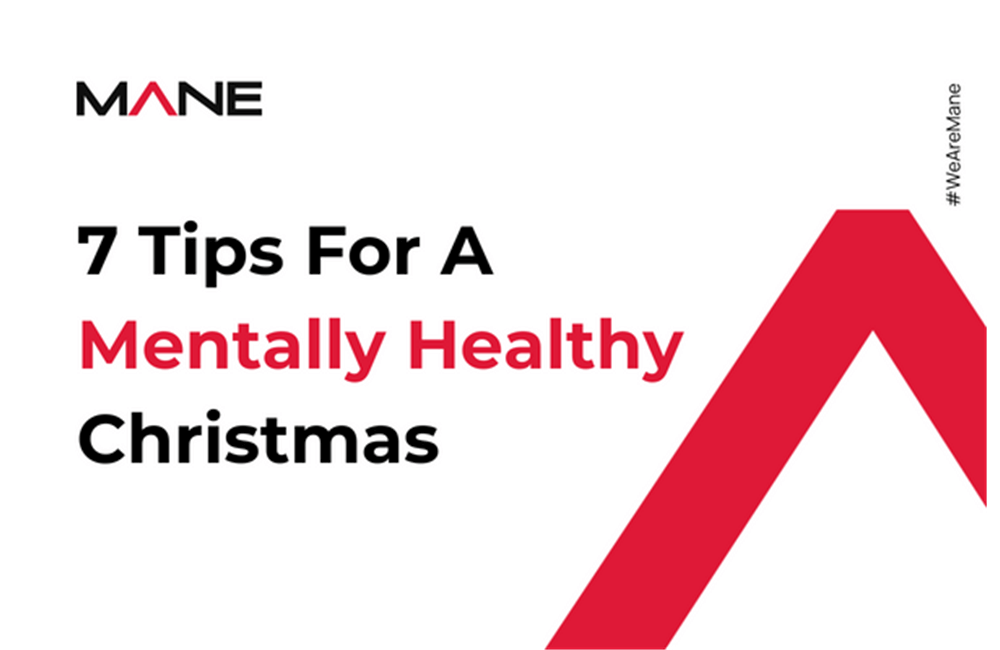7 Tips For A Mentally Healthy Christmas
23 Dec, 202210 minsFor many people, and for many reasons, Christmas can be anything but happy. A quarter of us ...

For many people, and for many reasons, Christmas can be anything but happy. A quarter of us find Christmas makes our mental health worse, according to YouGov, and a Mental Health Foundation survey found 54% of us are worried about the mental health of someone we know at Christmas.
Whether you’re concerned about your own mental health or someone else’s, here are some tips to help you cope and find some happiness over the Christmas period.
Depression at Christmas
The holiday season can be especially hard for those with depression. The pressure to be happy can make them want to withdraw from loved ones, which makes symptoms worse. Almost a third of Brits also suffer symptoms of a type of depression called seasonal affective disorder (SAD), caused by the lack of sunlight during winter. Getting out of the house for a walk can help.
Key symptoms of depression include:
- Intense sadness
- Feeling hopeless and worthless
- Low energy
- Changes in appetite and weight
Anxiety at Christmas
The music, lights, crowds, and intense socialising that come with Christmas can overwhelm people with anxiety, particularly social anxiety and panic disorders. It’s important to be aware of the symptoms of anxiety so you can minimise them if something happens to set them off.
Here are some of the most common symptoms:
- Persistent worry or dread
- Feeling fearful, paranoid and tense
- Increased heartbeat or palpitations
- Feeling faint, dizzy or light-headed
Stress at Christmas
Preparing food and decorations, finding money for presents, dealing with fraught family relationships, and clearing up all the mess makes Christmas stressful for many people–particularly women, who often handle most of these responsibilities. 51% of women and 35% of men have found Christmas stressful, according to YouGov–and the cost-of-living crisis is likely to push those figures up. That’s why it’s important to spot the symptoms as soon as possible.
Key symptoms of stress include:
- Feeling overwhelmed and as though you’ve lost control
- Anxiety and a constant sense of worry or dread
- Finding decisions difficult
- Being restless or unable to sit still
Loneliness and Grief at Christmas
Christmas is a particularly hard time for those who feel lonely–which isn’t necessarily the same as being alone. A Priory survey found 53% of men feel lonely at Christmas, even around others. For those who are grieving the loss of a loved one, Christmas can be even harder. Here are some tips to help you cope.
- Don’t isolate yourself the whole time, but don’t feel obliged to say yes to events you don’t feel up to.
- Plan your time in advance, and pencil in some lowkey self-care activities like going for a walk or seeing a movie.
- Seek help from the Samaritans or Cruse Bereavement Care if you need some extra support.
- If you do manage to enjoy yourself, don’t feel guilty. Your loved one would want you to carry on with your life.
7 tips for managing your mental health at Christmas
1. Don’t compare yourself with others
Whether it’s social media, adverts, or members of your own family, you’re likely to see someone who seems to have it all together and be doing better than you. Try to limit your exposure to advertising and social media and focus on enjoying your time with friends and family rather than worrying about how you measure up.
2. Have realistic expectations about family gatherings
Family rows are part of Christmas, especially when some members of the family don’t see each other often. It’s not going to go perfectly. Being realistic will help you avoid disappointment and might actually help it go better.
3. Participate in your community
When you’re struggling, anything that gives you a sense of purpose is invaluable. Getting out and volunteering or taking part in community events can help with your feelings of loneliness–and will certainly give you the warm glow of helping with someone else’s.
4. Take a break
It’s okay to step outside or go to a different room for a breather if you find your stress levels rising during festivities. You may want to pre-plan some breaks in advance if you have a lot of responsibilities, such as asking your partner to take the kids for a few hours.
5. Everything in moderation
Christmas is a time for treats and indulgence, but if you try to make yourself feel better by letting that slide into overindulgence–whether in food, alcohol, or something stronger–you’re likely to end up feeling worse.
6. Look after yourself
Make sure you get a decent amount of sleep and get outside at least once a day during the Christmas period, even if it’s cold. These basic self-care habits will boost your mood and help you cope with any challenges.
7. Don’t look back
New Year is coming, and almost everyone wishes they’d done more, become better, or stuck to their resolutions over the past year. It’s normal and human. You’re not alone. Focus on the positives, set realistic goals for the future, and try to look forward to what you’ll achieve next year.


